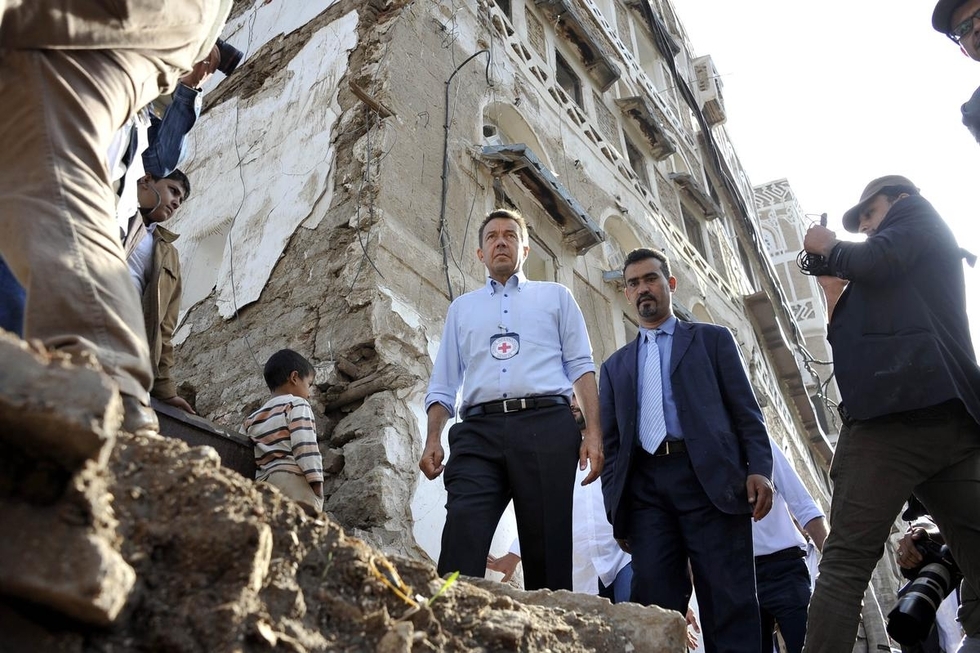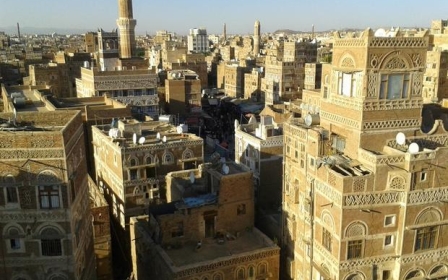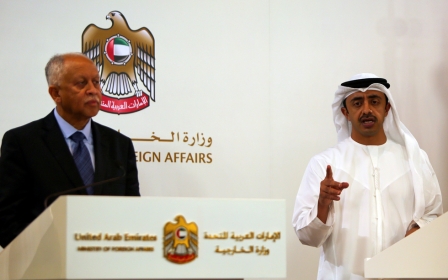Situation in Yemen 'catastrophic and getting worse'

The head of the International Committee of the Red Cross (ICRC) has described the humanitarian situation in Yemen as "catastrophic" and getting worse by the day after a three-day visit to the war-stricken country.
Peter Maurer, the president of the ICRC, also expressed shock at the level of suffering he had witnessed during stops in the capital Sanaa and the southern port city of Aden and said that no one in the country had been spared by the conflict.
At least 3,800 people have been killed and more than 19,000 injured since the beginning of a Saudi-led airstrike campaign at the beginning of April in support of government loyalists fighting Houthi rebels.
“The humanitarian situation is nothing short of catastrophic,” said Maurer. “Every family in Yemen has been affected by this conflict. The people are facing immense hardship. And it is getting worse by the day.”
“The world needs to wake up to what is going on,” he added.
The ICRC has doubled its operational costs in Yemen in 2015 to $57 million, but Maurer pointed out that aid workers could only do so much in the face of abject destruction, poverty, and dire lack of public health facilities.
“This cannot go on,” he said. “Yemen is crumbling. As a matter of urgency, there must be free movement of goods into and across the country. Deliveries of food, water and medicine should be facilitated.”
“Much more needs to be done,” Maurer continued. “And minds need to be focused to find a political solution quickly.”
More than two million people are dependent on the ICRC for providing them with clean water. The organisation also supplied food and other essentials to 100,000 people. Health facilities have been targeted and face a shortage of medicines.
According to Hilal Elver, the United Nations special rapporteur on the right to food, 12.9 million people in Yemen lacked basic food supplies and 850,000 children faced acute malnutrition.
“The compounded effects of intense fighting and import restrictions are having a dramatic impact on healthcare,” Maurer said, before launching into describing the miserable state of such services.
“Health facilities have been massively attacked as well as suffering collateral damage. Medicines can’t get in so patient care is falling apart. Fuel shortages mean equipment doesn't work. Insecurity means vaccination campaigns don't happen. And of course, the fighting makes getting to hospital a dangerous venture. It's a terrible downward spiral that puts thousands of lives at risk.”
Having held meetings with leading officials, Maurer said it was essential to find a political solution quickly, urging fighting parties to work towards a negotiated resolution.
Migrants and refugees fleeing from and going to Yemen
An estimated 1.3 million people are estimated to have been displaced by the war. In addition to Yemenis fleeing, the United Nations on Tuesday said that tens of thousands of Somali refugees who had initially sought refuge in Yemen from their own war-torn country had fled back home.
The refugees, who originally fled hunger and conflict in Somalia, have largely crossed the Gulf of Aden by boat to the Horn of Africa country's northern Somaliland and Puntland regions.
"Since March 2015, close to 29,000 people have arrived in Somalia from Yemen, 90 percent of whom are Somalis with more expected to arrive in the coming months," according to the UN Office for the Coordination of Humanitarian Affairs (OCHA).
"More people fleeing the conflict in Yemen is increasing the burden on already limited basic services," OCHA said, adding that those who arrived had been helped with food and basic goods.
Almost 10,000 Yemenis have also arrived in the small state of Djibouti since late March, according to the UN.
Meanwhile thousands of Ethiopians and other migrants continue to travel in the opposite direction to war-torn Yemen, many of them tricked by smugglers into believing the fighting there is over.
The UN said last month that over 10,000 migrants had arrived in Yemen since airstrikes began in March.
New MEE newsletter: Jerusalem Dispatch
Sign up to get the latest insights and analysis on Israel-Palestine, alongside Turkey Unpacked and other MEE newsletters
Middle East Eye delivers independent and unrivalled coverage and analysis of the Middle East, North Africa and beyond. To learn more about republishing this content and the associated fees, please fill out this form. More about MEE can be found here.




